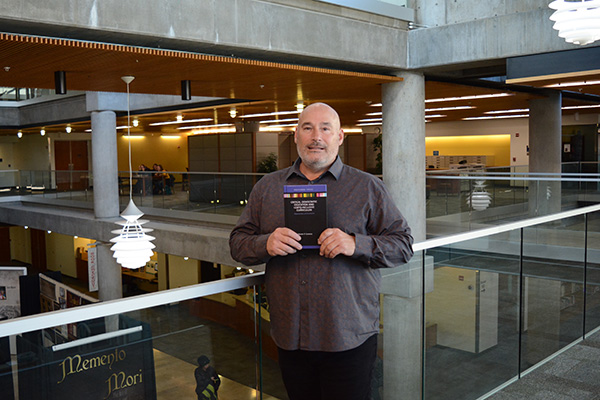Steven Camicia Recognized for Newly Published Book

Utah State University professor Steven Camicia is receiving accolades for his newly published book; it was selected by the American Educational Studies Association as one of its 2017 Critics’ Choice Book Award winners. According to the AESA, “the Critic’s Choice Award serves to recognize and increase awareness of recent scholarship deemed to be outstanding in its field.”
Titled Critical democratic education and LGBTQ-inclusive curriculum: Opportunities and constraints, Camicia’s book analyzes the impact of curriculum, culture, and inequitable power structures on education, with particular focus on the positive and negative effects those social systems can have on LGBTQ children. A social studies professor in the School of Teacher Education and Leadership, Camicia focused his research on school systems in Utah and California by interviewing educators, gathering classroom materials, and studying curriculum policies.
“One of the book’s strengths is that the principles apply across a lot of different communities and show how inclusion and exclusion work in schools,” Camicia said. “Creating equitable learning environments and helping students understand how to participate in democratic communities—when everyone isn’t the same—is an important part of a democratic education.”
Students learn better and are more engaged when their experiences and histories are reflected in what they’re learning, leading to increased academic achievement, Camicia said. Creating curriculum that is equitable and responsive is a central objective. Camicia emphasizes that healthy democratic communities and schools require the inclusion of marginalized people and perspectives.
Presenting the perspective of all students and their families can be accomplished through efforts such as assigning readings that provide snapshots of different kinds of families, asking questions that encourage students to adopt a critical viewpoint on social inequalities, or creating projects that encourage diverse thinking.
The curriculum standards written by the California Department of Education read, “Through studying the stories of a very diverse collection of families... students can both locate themselves and their own families in history and learn about the lives and historical struggles of their peers.”
Teachers should be encouraged to adopt inclusive principles on their own, Camicia said, but it’s difficult to be fully inclusive without the support of updated curriculum and other legislation, which is why so much of his book focused on the need for inclusive curriculum.
The negative impact of restricting inclusion in the classroom is evident. Research across the nation has shown that non-inclusive and hostile learning environments are detrimental to LGBTQ student academic performance, physical health, and can even increase the risk of death.
“Real lives are changed when classrooms are designed to appreciate multiple perspectives,” Camicia said.

